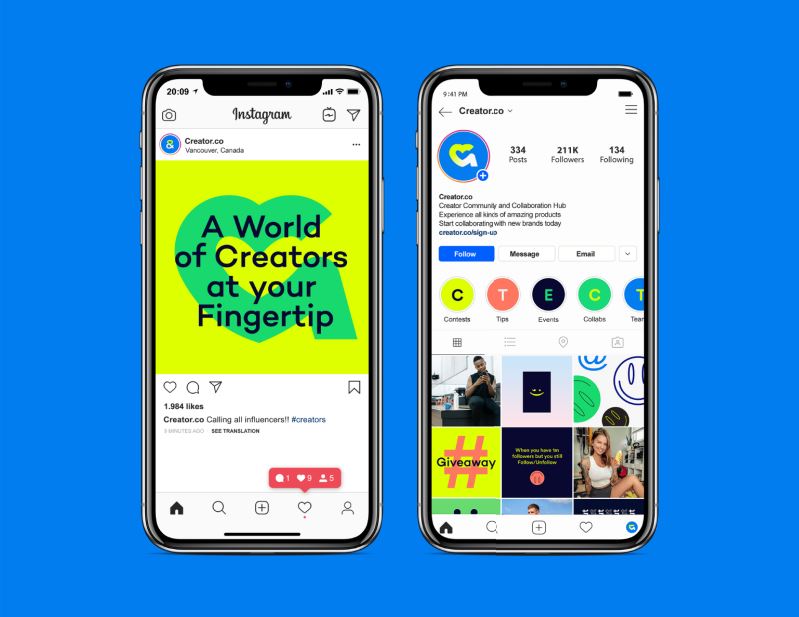A look at what the new year 2022 holds for influencer marketing
If there is one thing that the Covid-19 pandemic has shown us as a society over the past 20 months, it is how indispensable the internet has become in our modern world. Not only have smartphones and broadband connectivity enabled businesses around the world to quickly pivot to remote work paradigms, but they have also helped people stay in closer contact with friends and family than would have been possible in decades past.
Consequently, this increased engagement between people and their smart devices throughout the pandemic has also greatly accelerated demand for influencer marketing as brands look to partner with content creators that can highlight their respective products and services to a larger and more targeted audience. In fact, according to a report published late last year by Statista, the size of the global influencer market has more than doubled since 2019 and was valued at a record $13.8 billion in 2021.
However, even as the market grows exponentially, there will likely be a confluence of factors that work together over the coming months to reshape social eCommerce as we know it. Here are a few of the trends we expect to have the biggest impact in 2022:
Celebrities Lose Sway with the Masses
Even though we’re still in the early days of social influencer marketing compared to legacy media advertising, there has been a tendency for brands to place too much of an emphasis on trying to get celebrities with massive followings to pitch their products. However, the rise of more social media outlets beyond the Twitter and Facebooks of the world has provided an opportunity for ordinary people to become influencers.
Sure, having someone the likes of Kylie Jenner or Taylor Swift wear your clothing on an Instagram post might give you a temporary boon in terms of brand recognition, but it may not translate to increased sales. On the other hand, having a well-known home chef actually use a sauce or spice you are trying to get on grocery store shelves as part of a TikTok or YouTube tutorial could generate significant demand.
In a world that has become characterized by fake news and an overabundance of phoniness, people today are looking for authenticity in the media they consume, so seeking out those types of content creators will be key moving into 2022 and beyond.

The Rise of the Creator Economy
The proliferation of social media platforms that have given rise to this new generation of micro-influencers, as you might call them, has also served as a double-edged sword in many respects. On one hand, there are more outlets available than ever before where people can create content, however; many platforms also handcuff influencers in some regards by forcing them to pay a kickback of the ad revenue they receive. The policies of some tech companies are more onerous than others, but nearly all it seems to want a piece of the action when it comes to the revenue influencers are generating.
The good news for content creators is that the rise of Web3 (Web 3.0) is looming on the horizon and will provide them with a decentralized internet where they can essentially build and grow their own economy. Though the speculation bubble with regards to cryptocurrencies and non-fungible tokens (NFTs) has yet to fully settle, the fact is that these things are now a reality, and they will greatly influence the relationship between brands and content creators moving forward by enabling creators to take ownership of their intellectual property and how they are compensated for their work.
Additionally, some social media platforms have even gone so far as to create marketplaces for content creators where they can interact directly with brands to see how they work together on various campaigns, thus adding yet another layer to this creator economy.
The Entrepreneurship Opportunity
Perhaps one of the biggest societal trends that have come about in the wake of the pandemic is the desire of many people to hit the reset button on their careers. Last year alone more than 38 million Americans decided to quit their jobs.
Although the reasons for these voluntary career changes vary, it’s clear that many people have simply had enough of their normal day-to-day slog. While some have opted to jump ship for better pay and benefits or the opportunity to continue working from home in the locale of their choosing, a growing number are launching their own start-ups. In fact, through September of last year, Americans filed a record 1.4 million applications to start new businesses.
This presents a significant opportunity for influencers of all sizes, but particularly for nano and micro-influencers as a significant portion of these start-ups will be looking to reach audiences that are engaged with more niche and targeted content. Conversely, many influencers themselves are now launching their own companies as a result of the success they have found in cultivating and growing their respective fanbases.
By Vinod Varma, Founder & CEO, Creator.counder & CEO, Creator.co